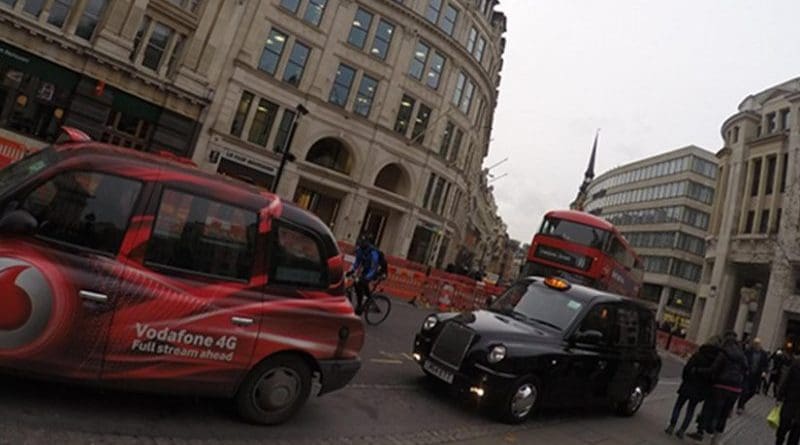London: Two Cities, Two Messages To China – OpEd
By Duncan Bartlett
Foreign visitors to London often don’t immediately realize that its power base is split between two separate but interconnected cities.
In the West lies Westminster, home to the Queen’s palace, the Houses of Parliament, Big Ben and Downing Street. It is there that the political power lies, supported by Royal heritage.
A short distance to the East lies the ancient City of London, established by the Romans and now home to the Bank of England, the London Stock Exchange, and many rich bankers.
Chinese leaders are received warmly in both environments but on the whole, they can expect a warmer welcome in the City than in Westminster.
Political pressure
That is because politicians’ views on China are tempered by their strong sense of its ideological difference to the UK: a one-party state which stands in contrast to their own multiparty democracy.
They are also inclined to express their views on China’s domestic and international policies, without being invited to do so by Beijing. For example, many MPs have voiced their support for the pro-democracy demonstrations in Hong Kong – a source of tension in mainland China.
When the Chinese Vice Premier Hu Chunhua came to London recently, he met the finance minister, Chancellor Philip Hammond at his official residence in Westminster at Number Eleven Downing Street. However, Mr Hu did not linger for a lengthy political debate with the MPs in the nearby parliament. The politicians’ views on China – or criticisms of his country – matter little to him.
Investment opportunity
Much more important are the financial opportunities in the City of London. So the big announcement from his trip was a deal to sell shares in Chinese companies through the London Stock Exchange.
Investors will be able to trade the global depositary receipts of firms such as the Chinese securities brokerage, Huatai. And companies which are listed in London will be able to dual list their shares in Shanghai, tapping into the huge pool of Chinese investors who have started playing the stock market.
The Managing Director of the Association of Britain China Financiers Trevor Wakely-Jones is delighted with the arrangement. “It’s all about gearing things up so the UK can tap into China’s growing market,” he says.
China is expected to have more than $17 trillion USD in assets under management by 2030.
“They are moving from a command economy to a modern day economy and there is a great appetite to learn how to do that. The Chinese are saying they would like our help and are keen to work together with Britain,” says Mr Wakley-Jones.
Socialist approach
Dual share listings through depositary receipts are distinctly different to traditional stock market ordinary shares. The international investors will have no right to vote on company decisions relating to strategy or management and this will prevent outsiders from interfering with the close ties between business managers and the Communist Party representatives.
The Party’s version of a market economy is based on Socialism with Chinese characteristics. China’s critics complain that by encouraging Chinese companies to list in London, Britain is legitimizing this political approach.
In general though, the financiers in the City of London are prepared to work with any government which offers to keep the money flowing through its institutions.
They hope to keep the City as one of the world’s leading financial centers – a status which could be challenged by Britain’s exit from the Europe Union, post Brexit. Outside the EU, Britain will cherish deals with many countries, including China.
Political turmoil
Another reason that the Chinese would rather side with the City than with Westminster is that Britain remains in a state of political turmoil.
The recent resignation announcement by Prime Minister Theresa May has led to a bitter leadership battle within the Conservative Party. Attitudes towards China have emerged as one of the points of division between the candidates.
This creates a challenge for the diplomats at Britain’s Foreign and Commonwealth Office. Naturally, they want to show Britain’s best side to VIP Chinese visitors, such as Vice Premier Hu Chunhua.
Britain’s minister for Asia, Mark Field, shook Mr Hu’s hand warmly during his trip to Downing Street. Field was invited to the meeting because he has a deep understanding of both finance and politics. He has served as a member of parliament for a constituency which covers both the City of London and Westminster since 2001.
Disgrace
However, Mr Field is currently in disgrace.
He has been suspended from his job – pending an investigation – because of a violent tussle with an environmental protester who invaded a luxury dinner for bankers in the City of London. He was filmed grabbing her by the neck and roughly marching her out of the dining room.
The woman, Janet Barker, insists her protest was entirely peaceful and later explained to a sympathetic journalist that she knits hats and gloves made from the fur of her pet angora rabbits – a hobby she started after reading about the way the animals are treated in China.
Given this debacle, it is understandable that the Chinese leaders don’t wish to become too dependent on Britain’s political class when it comes to doing business in the UK. They realize that the big money lies just a little to the East of the House of Commons.
As the old Chinese proverb notes, “If you have money, you can make the devil push your grind stone.”
And in London, if the first devil won’t do your bidding, it makes sense to head down the road to find another one.
This article was published by Geopolitical Monitor.com

